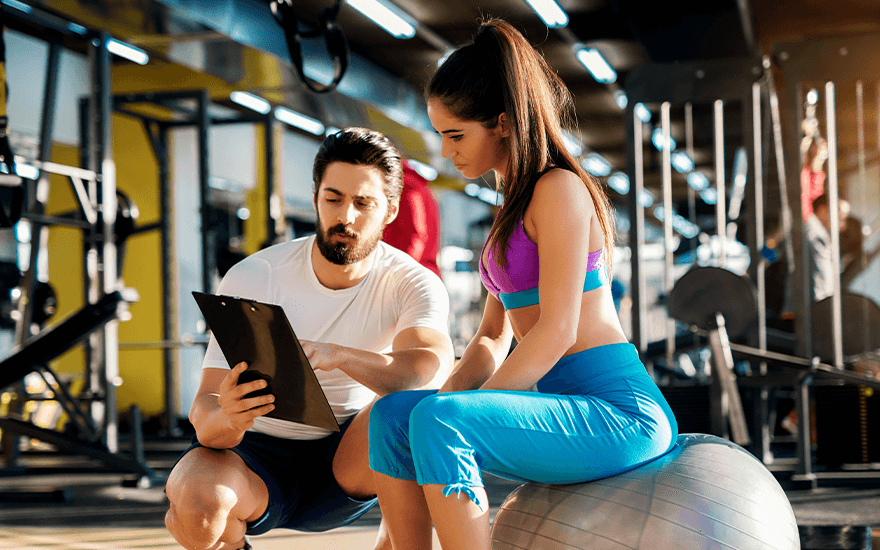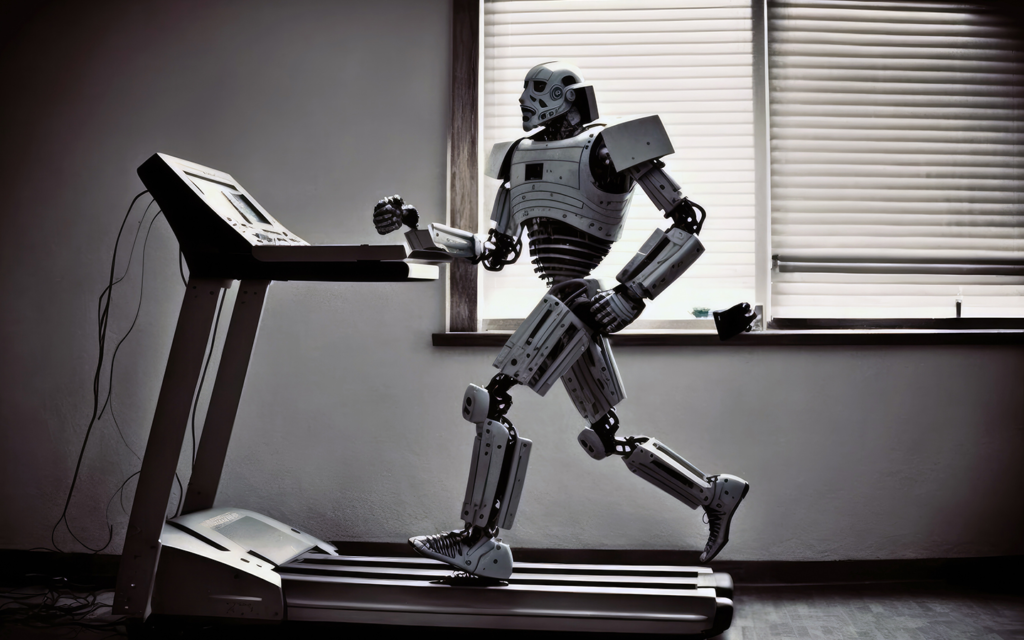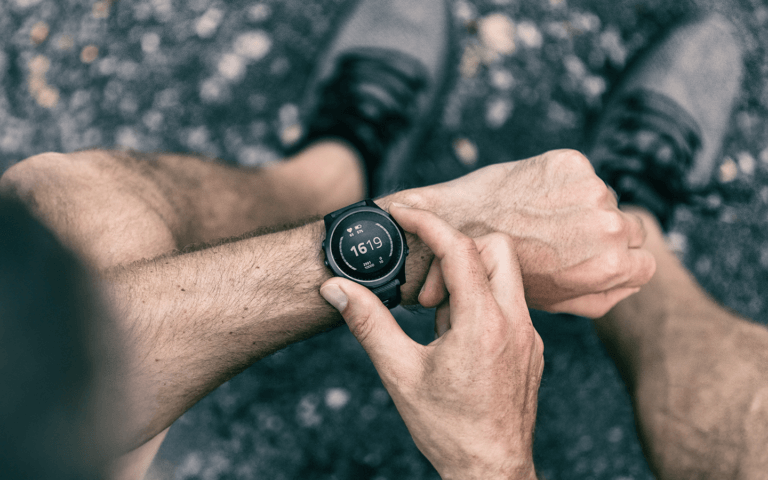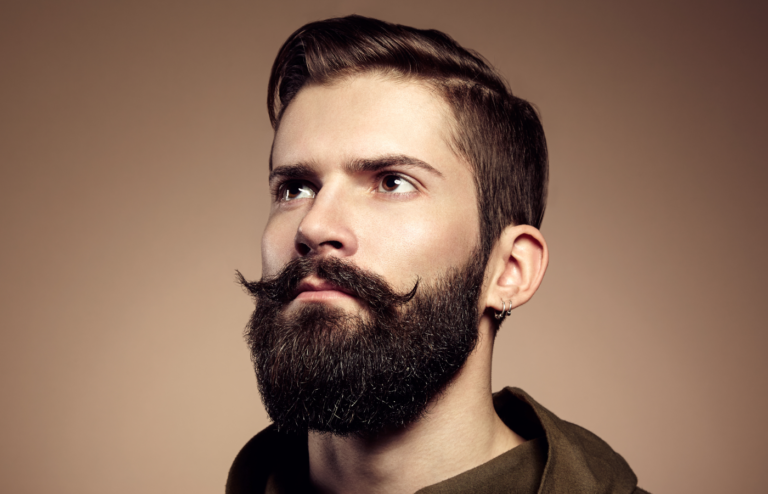The world of AI is dominating the headlines these days, with ChatGPT leading the technological charge.
But it’s not just the content you’re reading that is being taken over by robots – they are also trying their hand at personal training.
But can a robot really replace your personal trainer?
Or do you need the human touch to help you reach your goals?
How can AI help you get in shape?
No! Arnie from The Terminator won’t be standing over you, making you squat – it’s not that kind of AI.
So how does it actually help you get in shape?
“Coaches and nutritionists can use AI technology to offer tailored workout plans, meal plans, and health advice,” explains chatbot developer and digital marketing expert Ryan Dearlove.
“ChatGPT can also provide information about nutrition and supplementation, answer questions about exercise and health, and even offer motivation and support. If a client skips a session at the gym, you could program the app to send a message that provides motivation and encouragement. This feature could help gym owners increase retention rates and assist people in hitting their personal goals.
“A nutritionist could use ChatGPT to develop personalized meal plans for clients. The AI could generate tailored menus and grocery lists by inputting information such as age, weight, and dietary preferences. Similarly, a personal trainer could use ChatGPT to develop personalized workout plans based on a client’s fitness level, goals, and preferences.”
Friend or Foe
“While ChatGPT offers many potential benefits, there are also concerns about its use in the health and fitness industry,” says Ryan.
“On a positive note, it can provide personalized services at a lower cost than traditional coaching or nutrition services. Additionally, the technology can offer 24/7 support and instant feedback at scale, which could be helpful for individuals who struggle with motivation or accountability.

“However, the technology could eventually lead to the replacement of human coaches and nutritionists. Ethical considerations are an important aspect of the use of ChatGPT in the health and fitness industry. One of the primary concerns is the potential for AI to give inaccurate or even harmful advice. Without proper regulation and oversight, there is a risk that users could be provided with incorrect or harmful information.
“Another ethical consideration is the potential for AI to perpetuate biases and stereotypes. For example, if an AI is trained on data that contains biases, such as gender or race, it could perpetuate those biases in its recommendations and advice.”
Case Study: YCB Academy
YCB Academy wanted to develop a lead magnet to attract potential clients to their online coaching business. They decided to create an AI-powered chatbot On Facebook Messenger that would offer personalized meal plans to users.
The company hired Chit Chat Agency, a leading chat marketing company to develop the strategy and chatbot. Users could answer questions about their age, weight, and fitness goals, and the chatbot would generate a tailored meal plan. It would then send an automated follow-up asking them if they’d like to schedule a phone call with a coach.
The click-to-message ad strategy was a success. YCB Academy used the chatbot as a top-of-funnel acquisition strategy, thus reducing the cost-per-lead significantly compared to traditional click-to-website ads.
This is a good example of how AI can work alongside humans as part of a hybrid approach. Businesses can use AI to automate conversations, qualify leads, and then hand over those conversations to real humans.
“Smart brands are beginning to realize the opportunities available on messaging apps such as Messenger, Instagram Direct, and WhatsApp to shape consumers’ decisions and experiences. With the introduction of ChatGPT, these experiences are becoming even more multifaceted,” explains Ryan.
“A skincare company, for example, could run a click-to-message ad offering a personalized skincare consultation. When users click on the ad, they are directed to a chat conversation with a ChatGPT-powered chatbot, which asks them questions about their skin type, concerns, and current skincare routine. The chatbot can provide personalized product recommendations and skincare tips based on this information.
“The use of ChatGPT in click-to-message ads offers several benefits for businesses. Firstly, it allows businesses to offer personalized recommendations and advice to users, which can increase customer satisfaction and drive conversions. Secondly, it allows businesses to scale their customer engagement efforts, as chatbots can handle a large volume of conversations at once. Finally, it can help businesses save time and resources, as chatbots can handle basic inquiries and provide immediate responses, freeing up human representatives to handle more complex inquiries.”
The Muscle and Health Verdict
While AI technology has the potential to offer personalized services at a lower cost than traditional coaching and nutrition services, it also has limitations. AI cannot replace the human element of coaching, which includes motivation, empathy, and the ability to adapt to individual needs. Instead of replacing jobs, ChatGPT could potentially improve the industry by offering more accessible and affordable services.






